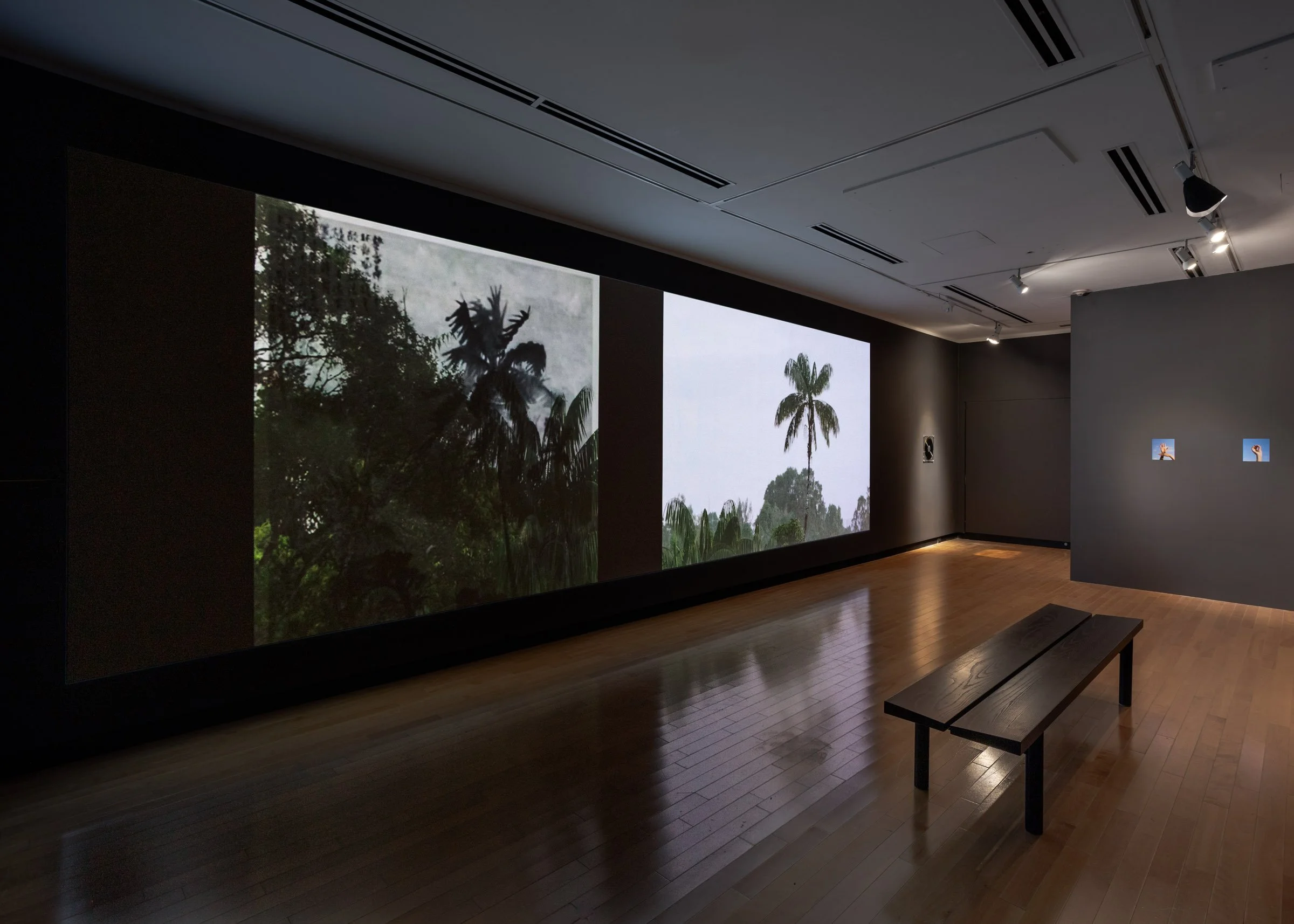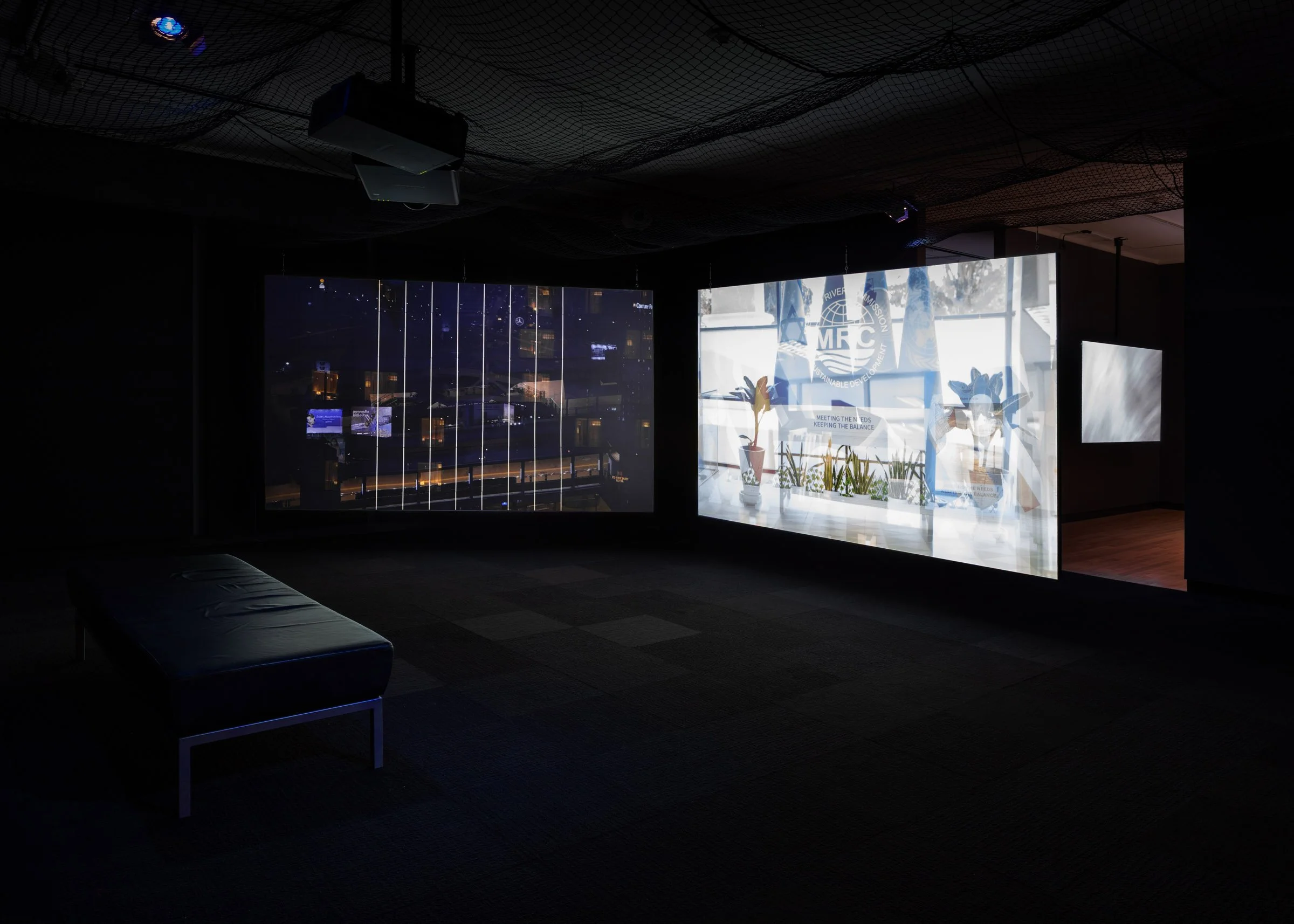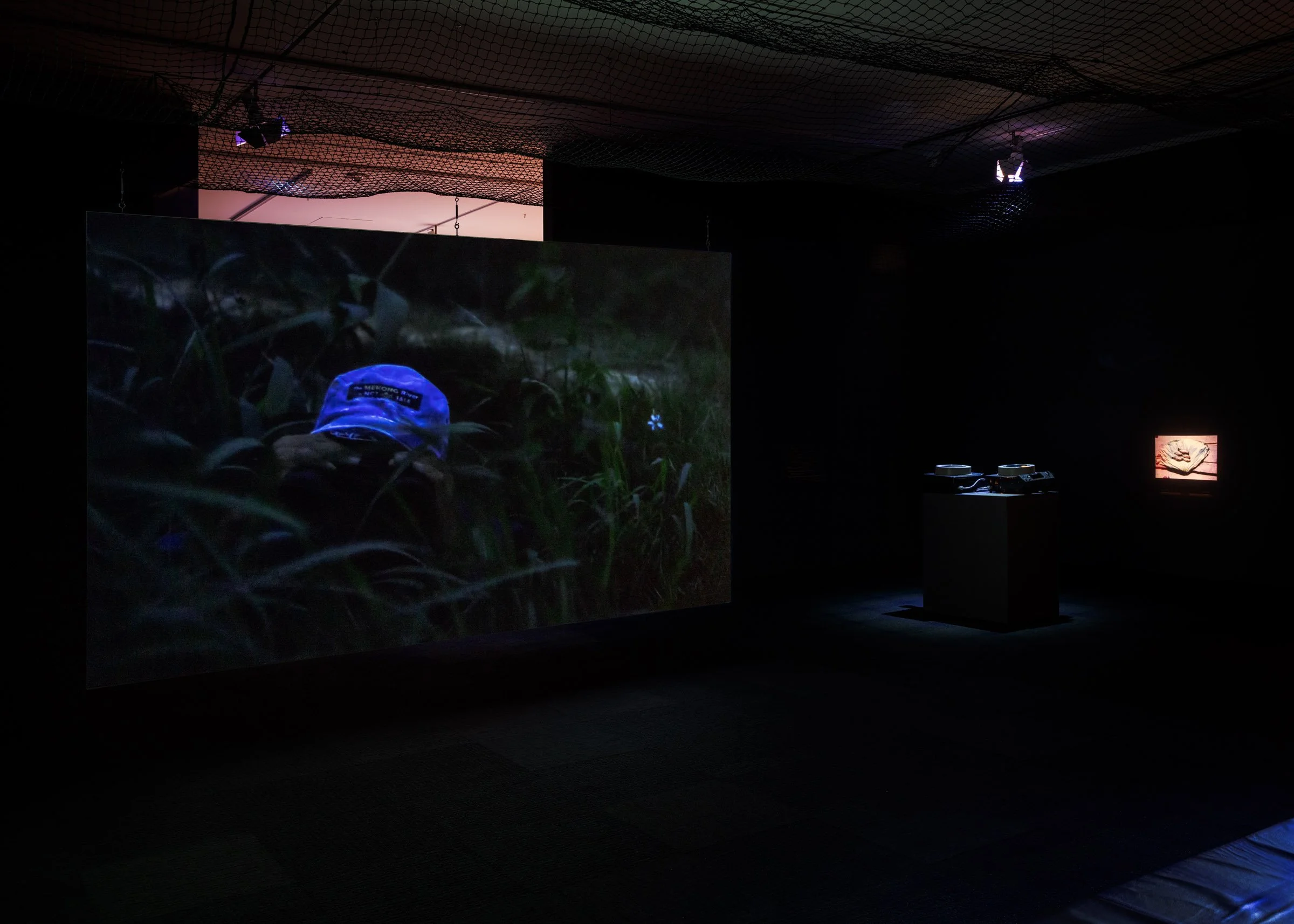Dwelling Under Distant Suns
Justina M. Barnicke Gallery
Art Museum at the University of Toronto
Sept 3, 2025 – Dec 20, 2025
https://artmuseum.utoronto.ca/exhibition/dwelling-under-distant-suns/
Artists:
Kent Chan
Alvin Luong
Solveig Qu Suess
Dwelling Under Distant Suns originates from the struggle to represent an increasingly precarious landscape of slow violence that occurs out of place and out of sight. In the exhibition, methods of myth-making and speculation underpin the filmic apparatuses of Alvin Luong, Solveig Qu Suess, and Kent Chan. Through their works, heat, water and agricultural lands entangle with human movements on the ground, serving as channels of inquiry into a heterogenous environmental and geopolitical past, present and future.
The exhibition is cyclic, like the trans-corporeal histories of toxicity narrated by Luong that reveal unpayable generational debts metabolized through Vietnamese bodies. It is also kaleidoscopic, like the fluctuating Mekong in Suess’s film, elucidating spectres of transnational power dynamics upheld through aspirations of renewable energy, existing in friction with other forms of knowledge on the banks and beside the riverbeds. It is also offered as foresight, like Chan’s inquiry into alternative modes of order, governance and relationality in a climate-induced future. What is at stake when the media venerates the spectacular, whilst disaster and violence become postponed? The artists in the exhibition invite alternative strategies of apprehension that make the image-world of cataclysm more immediate and present.
This exhibition is produced as part of the requirements for the MVS degree in Curatorial Studies at the John H. Daniels Faculty of Architecture, Landscape, and Design, University of Toronto.
It is supported by the Jackman Humanities Program for the Arts as part of its 2025–26 annual theme, Dystopia and Trust.
Photos: LF Documentation, courtesy of the Art Museum at the University of Toronto.



















